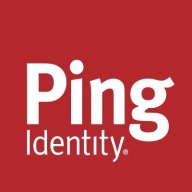


ForgeRock and JumpCloud are competing identity management solutions. JumpCloud appears to have an advantage based on data comparisons in pricing and ease of deployment, although ForgeRock offers robust features that may appeal to larger enterprises with complex needs.
Features: ForgeRock provides a wide-ranging suite of identity management capabilities, including customizable authentication, comprehensive identity governance, and adaptive risk-based authentication. JumpCloud focuses on a centralized user and device management with seamless integration across numerous applications and environments. ForgeRock's feature-rich platform is suitable for complex enterprise needs, while JumpCloud's cloud-based simplicity offers flexibility for diverse IT landscapes.
Room for Improvement: ForgeRock could enhance its deployment process to be less resource-intensive and streamline user interface navigation to improve usability. JumpCloud could bolster its policy management capabilities and expand its range of integrations with on-premise systems. Both solutions would benefit from more granular analytical reporting features and improved customization options.
Ease of Deployment and Customer Service: JumpCloud stands out for its straightforward, cloud-driven deployment process that facilitates quick adoption across multiple platforms, bolstered by effective customer support. ForgeRock, while comprehensive in its feature set, tends to involve a more intricate deployment that requires deeper expertise and resources, although it provides robust support once operational.
Pricing and ROI: ForgeRock's initial setup costs and extended deployment timelines can impact its ROI for smaller enterprises, making it a significant consideration for budget-conscious businesses. JumpCloud offers a more predictable and cost-effective pricing model, potentially delivering faster ROI due to its affordable setup costs and efficient deployment. These elements make JumpCloud a more compelling choice for organizations prioritizing rapid value realization and cost-effectiveness.



Omada Identity is an identity governance and administration (IGA) solution designed to help organizations manage and secure digital identities and access across their IT environments. It focuses on enhancing security, compliance, and efficiency by automating identity management processes.
Omada Identity offers a robust set of features that streamline identity lifecycle management, access governance, and compliance reporting. It integrates with a wide range of IT systems, applications, and data sources, providing a centralized platform for managing user identities and access rights. The solution enables organizations to enforce security policies, ensure regulatory compliance, and reduce the risk of unauthorized access.
What are the critical features of Omada Identity?
What benefits or ROI items should users look for in the reviews when evaluating Omada Identity?
Omada Identity is widely adopted across various industries, including healthcare, finance, and manufacturing. In healthcare, it helps protect patient data and comply with regulations like HIPAA. In finance, it ensures compliance with SOX and other financial regulations. In manufacturing, it secures access to sensitive production data and intellectual property.
Pricing and licensing for Omada Identity are typically based on the number of users and the specific features required. Customer support is available through various channels, including online resources, support tickets, and professional services for implementation and customization.
In summary, Omada Identity is a comprehensive IGA solution that enhances security, compliance, and efficiency in managing digital identities and access.
ForgeRock is a comprehensive open-source identity and access management solution designed to meet the unique needs of your users and workforce. With ForgeRock you can orchestrate, manage, and secure the complete lifecycle of identities in any cloud or hybrid environment. ForgeRock allows you to set up bot detection, identity proofing, and risk-based authentication.
With ForgeRock, you can define access policies and automate the management of the identity lifecycle all from a central, easy to use, and graphical dashboard. ForgeRock Access Management allows you to build safe authentication using options like passwordless and usernameless logins, single sign-on, biometrics, contextual analytics, and behavioral authentication. When threats appear, you can swiftly change how your users access your most sensitive applications and provide users with secure access to the applications, systems, and resources they need on demand.
ForgeRock Benefits and Key Features
Reviews from Real Users
ForgeRock stands out among its competitors for a number of reasons. Two major ones are its robust identity and access tools and its being easy to manage and scale with one central dashboard.
PeerSpot users note the effectiveness of these features. A technology solutions leader at an outsourcing company writes, “We need it for multiple clients, multiple implementations. Not all of them are necessarily a multi-tenant solution. We need a very versatile solution that can do a lot of work, but from a single instance that we can centralize authentications and we don't duplicate the efforts and that's where ForgeRock seems to do better.”
Mohamed B., a cyber security consultant at a tech company, writes, "Their access management solution, OpenAM, is most valuable because it meets the needs of a lot of users. ForgeRock secured our system so that it is accessed only by authorized people, and it implemented the SSO."
JumpCloud enables organizations to manage devices, users, and applications across platforms like Windows, Mac, Linux, iOS, and Android. It offers centralized authentication, identity and access management, single sign-on, directory services, security policy enforcement, and cloud service integration.
Organizations leverage JumpCloud for its robust device management, policy management, and seamless integration with applications such as Microsoft 365 and Google Workspace. Its flexibility, stability, scalability, and ease of use make it a strong choice for managing business directories, executing scripts on-demand, synchronizing system access, and implementing mobile device management. Key features include remote access, Windows Out of Box Experience, strong authentication and authorization controls, centralized user and device management, efficient onboarding and offboarding processes, and extensive security and reporting features.
What are the most important features?In specific industries, JumpCloud is utilized to manage a wide array of tasks such as automating administrative functions in healthcare, ensuring secure access to sensitive data in finance, and supporting remote work needs in technology sectors. Its ability to integrate with diverse platforms and provide centralized control makes it suitable for managing complex IT environments.
We monitor all Identity Management (IM) reviews to prevent fraudulent reviews and keep review quality high. We do not post reviews by company employees or direct competitors. We validate each review for authenticity via cross-reference with LinkedIn, and personal follow-up with the reviewer when necessary.